As a medical doctor with patients passionate about fitness, I frequently encounter queries about the impact of pre-workouts on health.
One common concern is whether these supplements contribute to hair loss. Traditionally, I've reassured my patients that pre-workouts are not a direct cause of this issue.
However, recognizing the importance of evidence-based assurance, I've embarked on a journey to delve deeper into this topic.
Quick Summary
- There is no scientific evidence proving that pre-workout supplements cause hair loss.
- BCAAs, B vitamins, creatine monohydrate, and caffeine are the common ingredients found in pre-workouts.
- According to studies published by the National Institutes of Health, hair loss is a side effect of steroid use and is one of the reasons why many male bodybuilders and top fitness competitors who use it, go bald.
- In my professional opinion, the benefits of pre-workout supplements far outweigh any unproven concerns about hair loss.
Does Pre Workout Cause Hair Loss?
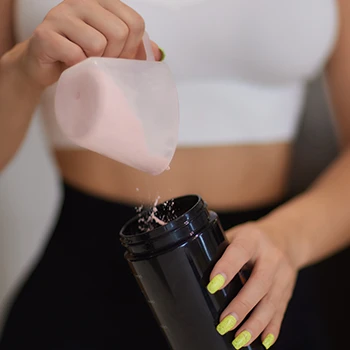
No, pre-workouts do not cause hair loss. Claims to the contrary don't have concrete scientific backing since no study has proven that they directly cause male pattern baldness.
“Male pattern baldness is the most common type of hair loss in men. Hair at the temples and on the crown slowly thin and eventually disappear.”
- Tim Newman, Medical News Today
Now, to properly answer the question of whether pre-workouts cause loss of hair, let’s examine some common ingredients that you'll likely find in a pre-workout supplement:
- Caffeine
- Creatine Monohydrate
- BCAAs
- B-Vitamins
- Nitric Oxide precursors
Now, let's explore each ingredient in detail.
Caffeine
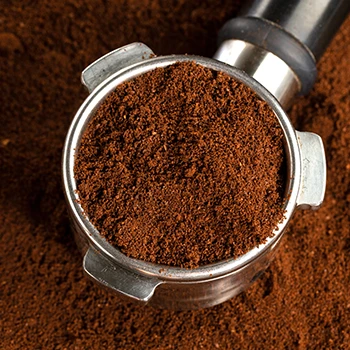
In my experience with patients who regularly use pre-workout supplements, caffeine is often highlighted for its role in enhancing physical and mental performance.
I've observed noticeable improvements in their focus and energy levels during workouts.
Of course, it has some adverse side effects when used excessively, as shown by Medline Plus [1]. The effects include:
- Jitters or extreme nervousness
- Anxiety
- Insomnia
But does pre-workout cause hair loss because of it? Not at all.
Studies show that caffeine actually promotes female and male hair growth.
A 2007 study published by the International Journal of Dermatology investigating the effects of caffeine and testosterone on human hair revealed that caffeine helps block dihydrotestosterone (DHT), an androgen hormone responsible for hair loss [2].
Scientists pointed out that the stimulant prolonged the anagen hair growth phase and promoted hair shaft elongation, resulting in broader and longer hair roots in males.
The same study also found growth-promoting effects on female hair, thanks to the stimulant. As such, you need not worry about losing your hair even if you're sensitive to caffeine.
Branched Chain Amino Acids (BCAAs)
From my observations in clinical practice, patients consuming BCAAs have not shown any signs of accelerated hair loss. This aligns with the lack of scientific evidence connecting BCAAs to baldness.
Existing claims allege that high doses of BCAAs, in addition to an exercise regimen, may lead to increased testosterone levels which can negatively impact the hair.
However, research published by the First International Journal of Andrology has found that this boost in T production is independent of amino acids’ supplementation [3].
Creatine
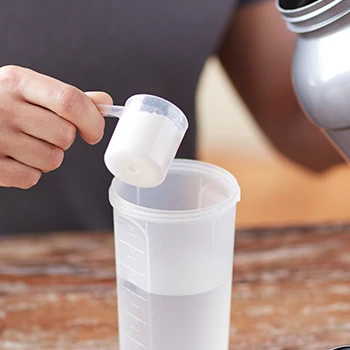
In my years of advising fitness enthusiasts, many have reported significant benefits from creatine in terms of energy and muscle growth.
Despite some claims, I haven't seen any direct correlation between creatine use and increased male pattern baldness among my patients.
The thinking behind the claims is that some pre-workout ingredients, especially creatine, stimulate the production of hormones like testosterone which negatively impact the hair.
However, additional studies published in the National Library of Medicine on the subject have proven that even without strength training, creatine does not impact your T levels [4].
B-vitamins
In my practice, I've seen cases where a deficiency in B vitamins, particularly B7 and B12, led to hair issues. However, those using pre-workout supplements with B vitamins haven't reported hair loss linked to these vitamins.
Quite the contrary – a deficiency in essential B vitamins such as biotin (B7) and B12 has been linked to hair loss.
Research by the National Institutes of Health asserts that only a handful of B vitamins have been associated with the loss of hair [5]. They include:
- Riboflavin (B2)
- Biotin (B7)
- Folate (B9)
- vitamin B12
Interestingly, although a deficiency in B12 may contribute to hair loss, research has yet to find that supplementing with the same will boost hair growth, as per Medical News Today [6].
On the other hand, research published by the National Library of Medicine has shown that supplemental biotin (B7) may be beneficial, but only in people with a deficiency [7].
Nitric Oxide Precursors
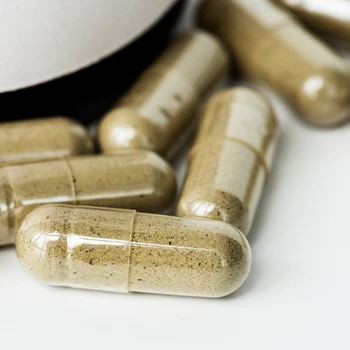
So, Why Do Bodybuilders Go Bald?
Bodybuilders go bald because of genetics, stress, and anabolic steroids.
According to studies published in the National Institutes of Health, hair loss is one of the side effects of using anabolic steroids.
Many male bodybuilders and top fitness competitors use it to increase muscle mass. This is why many of them are bald [10].
Additionally, the psychological impact of hair loss should not be underestimated. Hair loss can lead to increased stress and anxiety, creating a cycle that may exacerbate the condition.
But when it comes to pre-workout supplements, they don't contain anabolic steroids, so there is no need to worry.
The Cause of Baldness

Medical News Today reports that baldness is linked to dihydrotestosterone (DHT), an androgen hormone [11]. DHT is key in the sexual development of adolescent males.
It contributes to the sexual differentiation of embryonic organs, as highlighted by National Institutes of Health studies [12].
It also plays a vital role in the adolescent stage of a young male adult. DHT is responsible for the following in young adults:
- Prostate growth
- Sebaceous gland activity
- Development of body, facial, and public hair
Benefits of Testosterone
Testosterone has numerous benefits, especially for men. It contributes to the following:
- Bone density
- Muscle strength and mass
- Red blood cell production
- Sex drive
- Sperm production
Unfortunately, boosting testosterone by exercising with or without pre-workouts also increases DHT, which can accelerate hair loss, mainly for those genetically predisposed.
But even with a family history of hair loss, you might be able to avoid or stave off losing hair by eating healthily and exercising regularly.
In any case, if signs of a receding hairline start to show, they can still be reversed, especially if detected early. More on this shortly.
Symptoms of Too Much DHT
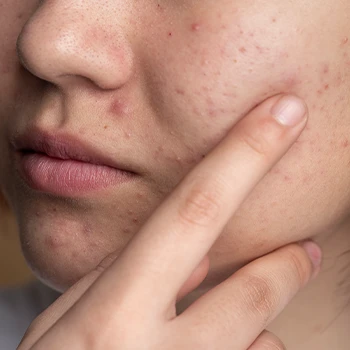
Too much DHT in your bloodstream often leads to hair loss, as per WebMD [15]. Other symptoms include:
- An enlarged prostate
- Acne
- Increased sweating
- High blood pressure
If you see these signs, don't wait until scalp micro pigmentation is the only alternative. Consult your doctor for early hair loss treatment.
Reducing DHT levels
In cases where I've diagnosed patients with high DHT levels, I've prescribed medications like finasteride and advised dietary changes. These interventions have often led to positive outcomes in managing their hair health.
Such medications have been shown to reverse hair loss as per studies in the Journal of Drugs in Dermatology [16].
And where necessary, they may insist that you change your diet and include some foods that act as natural DHT blockers. The foods include:
- Spinach
- Kale
- Banana
- Green tea
- Flax seeds
The key to keeping your hair healthy is making healthy choices. This means a balanced diet and regular exercise.
Here are more tips to combat hair loss:
- Reduce stress
- Sleep regularly
- Reduce your overall body fat
- Conduct regular scalp exercises and massages that increase blood flow to the top of your head
Benefits of Pre-workout Supplements
With hair loss concerns out of the way, let’s take a brief look at some hard-to-miss benefits that come with taking a pre-workout supplement.
They include:
- A boost in blood flow and, therefore, increased energy and athletic performance
- Enhanced focus
- Supports muscle development and weight loss
- Essential nutrients for faster recovery
It's also worth noting that hormonal changes, apart from those potentially induced by pre-workout supplements, can significantly affect hair health.
Conditions like thyroid disorders or life stages such as pregnancy or menopause can have a profound impact on hair growth and quality, highlighting the importance of a holistic approach to health and fitness.
References:
- https://medlineplus.gov/caffeine.html
- https://onlinelibrary.wiley.com/doi/10.1111/j.1365-4632.2007.03119.x
- https://onlinelibrary.wiley.com/doi/10.1111/and.13183
- https://pubmed.ncbi.nlm.nih.gov/19741313/
- https://www.ncbi.nlm.nih.gov/pmc/articles/PMC6380979/
- https://www.medicalnewstoday.com/articles/318403
- https://www.ncbi.nlm.nih.gov/pmc/articles/PMC5582478/
- https://www.mdpi.com/2223-7747/11/3/330
- https://www.medicalnewstoday.com/articles/326381
- https://www.ncbi.nlm.nih.gov/pmc/articles/PMC3827559/
- https://www.medicalnewstoday.com/articles/68082
- https://www.ncbi.nlm.nih.gov/books/NBK557634/
- https://www.ncbi.nlm.nih.gov/pmc/articles/PMC4174066/
- https://www.webmd.com/men/features/exercise-and-testosterone
- https://www.webmd.com/skin-problems-and-treatments/hair-loss/understanding-hair-loss-basics
- https://jddonline.com/articles/a-systematic-review-of-topical-finasteride-in-the-treatment-of-androgenetic-alopecia-in-men-and-wome-S1545961618P0457X/
About The Author
You May Also Like






